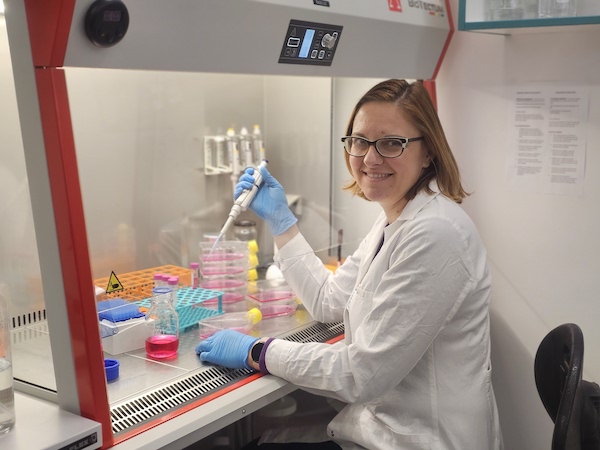Cooperation between dr. Marta Maleszewska-Bobińska and dr. habil. Anna Malikon the project – REST and KAISO as Potential Therapeutic Targets in the Development of Glioblastoma Therapy

31 01 2025
Dr. Marta Maleszewska-Bobińska and Dr. habil. Anna Malik will conduct research as part of a consortium led by Dr hab. Bartosz Wojtaś from the Nencki Institute of Experimental Biology, PAS. The consortium will carry out a project titled “REST and KAISO as Potential Therapeutic Targets in the Development of Glioblastoma Therapy”, which has received funding of 2,421,076 PLN in the Opus 27 programme of the National Science Centre (NCN).
Glioblastoma multiforme is a deadly disease with poor prognosis and limited therapeutic options. New therapeutic strategies are urgently needed. REST (RE1-silencing transcription factor) is a protein mostly recognized for its role in repressing the expression of neuronal genes in non-neuronal tissue. In neuronal progenitor cell development, REST is crucial for determining the fate of precursor/stem cells through epigenomic regulatory mechanisms related to DNA methylation and histone modifications that may change the fate of the affected cells.
Recently, the group of Prof. Bartosz Wojtaś described a putative interaction between REST and KAISO, another repression/activation protein, well recognized in human oncogenesis. We hypothesize that these two proteins are functionally linked and that targeting them simultaneously will produce a synergistic effect, highlighting REST and KAISO as promising new therapeutic targets for brain tumors.
To verify this hypothesis, we created a consortium between Nencki Institute of Experimental Biology PAS and Faculty of Biology, University of Warsaw. To evaluate the role of REST and KAISO in maintaining a pro-oncogenic phenotype, the group of Dr Marta Maleszewska at the Faculty of Biology will establish single and double REST/KAISO knockout glioblastoma cell lines and evaluate their oncogenic potential.
The whole genome epigenomic characterization of REST/KAISO knockout cells will be performed, and data will be analyzed by Prof. Bartosz Wojtaś’s group. Lastly, the team led by Dr hab. Anna Malik from the Faculty of Biology, University of Warsaw, will evaluate the clinical potential of REST and/or KAISO depletion in a murine model of glioblastoma multiforme.